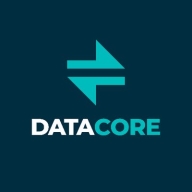


DataCore Swarm and MinIO are two key players in the object storage market. MinIO seems to have the upper hand with its advanced feature set that provides significant value despite higher cost implications.
Features: DataCore Swarm offers ease of scalability, maintaining robust data integrity and affordability. MinIO provides high-performance architecture, modern application compatibility, and advanced technological integration.
Ease of Deployment and Customer Service: DataCore Swarm provides a straightforward deployment process accompanied by comprehensive support, which simplifies troubleshooting and implementation. MinIO offers a more flexible deployment model, which can be complex, often requiring advanced technical expertise.
Pricing and ROI: DataCore Swarm presents attractive setup costs focusing on immediate cost-effectiveness, promising quick returns on investment. MinIO, while incurring a higher initial cost, is tailored for organizations focused on long-term performance and scalability, realizing ROI through efficient handling of demanding operations.


FlashBlade is the industry’s most advanced scale-out storage for unstructured data, powered by a modern, massively parallel architecture to consolidate complex data silos (like backup appliances and data lakes) and accelerate tomorrow’s discoveries and insights.
Swarm provides a platform for data protection, management, organization and search at massive scale. You no longer need to migrate data into disparate solutions for long-term preservation, delivery and analysis. Consolidate all files on Swarm, find the data you are looking for quickly, and reduce total cost of ownership by continuously evolving hardware and optimizing use of your resources.
MinIO is an open-source object storage system. It is designed to efficiently store and retrieve unstructured data, such as photos, videos, and backups. MinIO can be used as a standalone object storage server or as part of a larger system, such as a data lake or a private cloud, and can be deployed on-premise, in the cloud, or in a hybrid environment, making it a flexible storage solution for a variety of use cases.
MinIO’s features include erasure coding, bitrot protection, and checksum validation, which help ensure data integrity and reliability. The solution’s multi-tenancy support makes it ideal for multi-user environments. MinIO’s edge computing tools enable data storage and processing closer to users' locations, reducing latency and improving performance. MinIO can easily scale to accommodate storage and power demands, making it ideal for use in large-scale, data-intensive environments.
MinIO Benefits and Features:
MinIO offers several key benefits and features for organizations looking for a scalable and high-performing object storage solution:
Reviews from Real Users
MinIO stands out among its competitors for a number of reasons. Several major ones are its flexibility, integration options, and performance.
Süleyman Fazıl Y., a senior software engineer at a tech services company, writes, “The most valuable features are that MinIO is open, it works on-premise, and is compatible with the Amazon industry which is great for finding compatible libraries in many languages which is very good for developers.”
Rebecca S., CTO at NIASE, says, “MinIO is much improved over the prior solution, updates are simple to apply, and we anticipate that future capacity requirements will be easier to meet. Our customers are using this solution to retrieve tens of thousands of objects (documents and files) per hour, and MinIO seems to be able to keep up with it.”
We monitor all File and Object Storage reviews to prevent fraudulent reviews and keep review quality high. We do not post reviews by company employees or direct competitors. We validate each review for authenticity via cross-reference with LinkedIn, and personal follow-up with the reviewer when necessary.